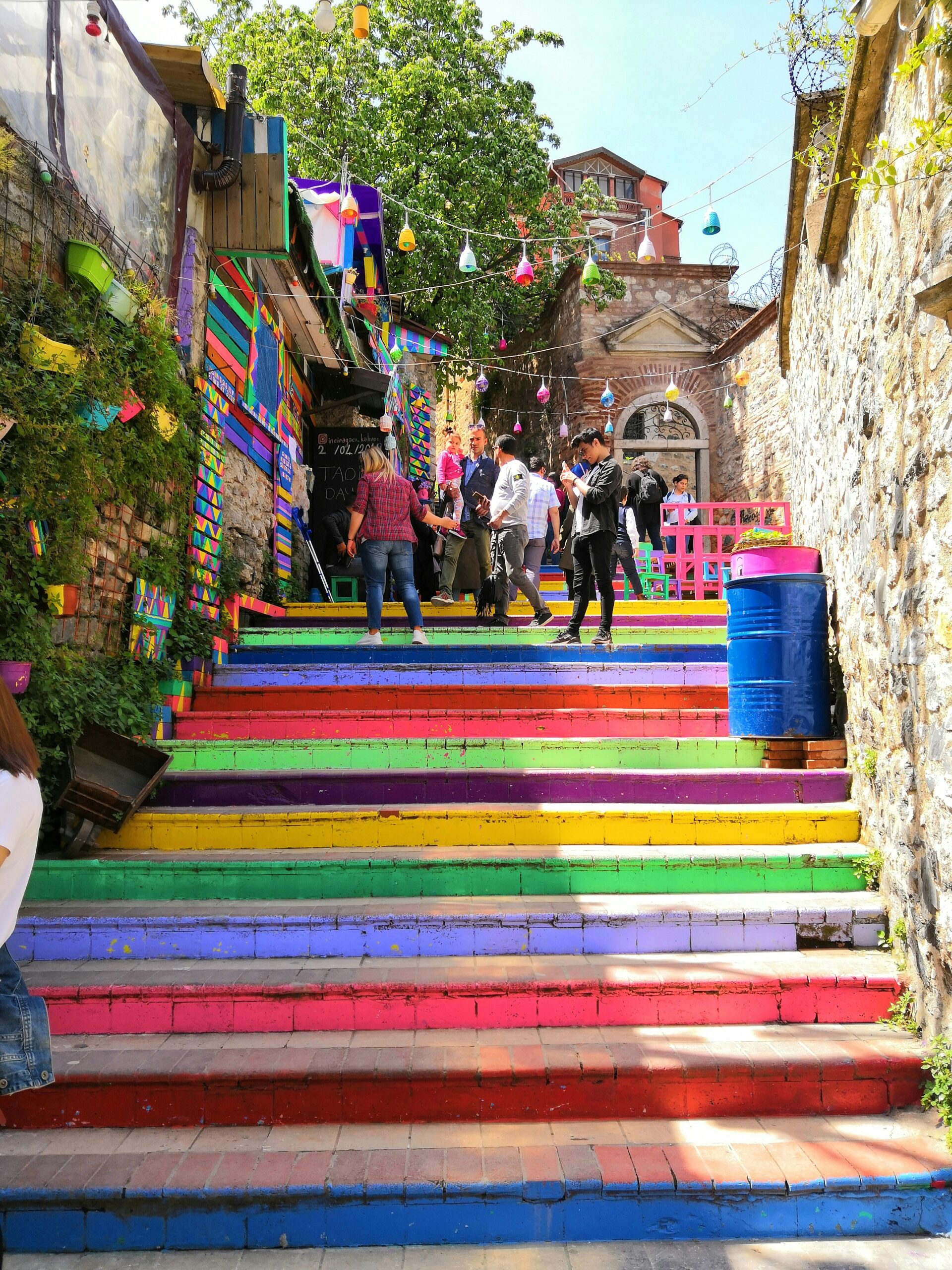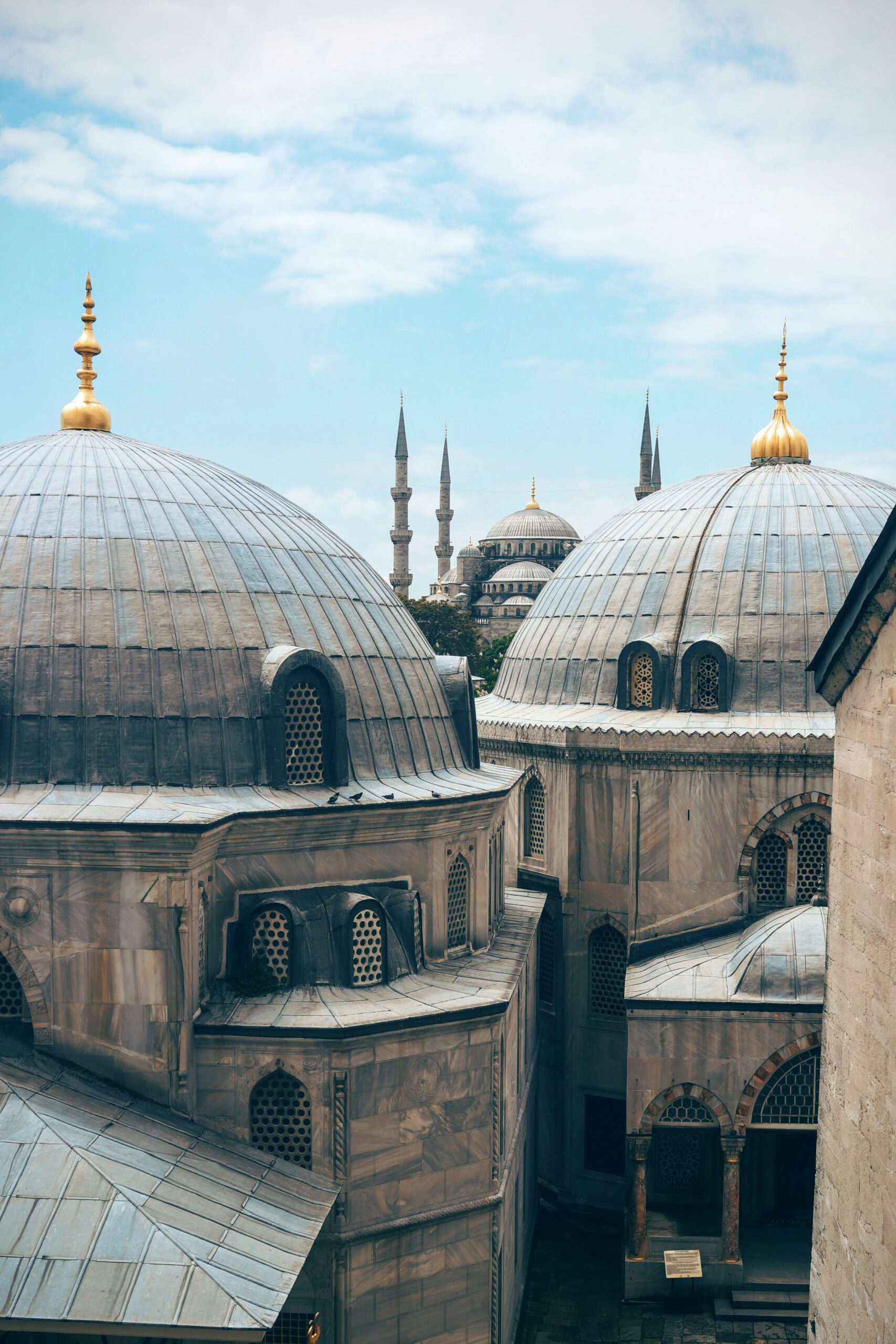Imagine a land that effortlessly bridges the East and the West, a nation vibrant with stunning landscapes, rich history, and a warm, welcoming culture. Well, that’s Turkey for you. Nestled in both Asia and Europe, Turkey stands as a magnificent crossroads, where ancient civilizations have left their indelible mark, and passionate traditions intertwine with modern charms. Embark on a visual journey through the bazaars of Istanbul, savor the tantalizing flavors of Turkish cuisine, and discover the mesmerizing beauty of Cappadocia’s fairy chimneys. With its allure and wonders, Turkey beckons you to explore its hidden treasures and make memories that will last a lifetime.

Turkey’s Geographical Significance
Turkey is a country blessed with a strategic location that holds great significance. Located at the crossroads of Europe and Asia, it serves as a bridge between the two continents. This unique geographical position has made Turkey a critical player in various historical, political, and economic aspects.
Turkey’s Strategic Location
Sitting between the Black Sea and the Mediterranean Sea, Turkey is surrounded by several countries, including Greece, Bulgaria, Georgia, Armenia, Iran, and Iraq. It shares borders with eight different nations, making it a vital connecting point between Europe, Asia, and the Middle East. This strategic location has made Turkey a crucial hub for trade, transportation, and cultural exchange throughout history.
Importance of the Bosporus and Dardanelles
One of the key geographical features that contribute to Turkey’s significance is the Bosporus and Dardanelles straits. These waterways connect the Black Sea with the Aegean Sea and the Mediterranean, respectively. They have long served as crucial trade routes, bridging the gap between the East and West. Control over these straits has historically been a matter of great importance, leading to conflicts and treaties that have shaped the region’s history.
History of Turkey
Turkey has a rich historical background that dates back to prehistoric times. The land has been inhabited by various civilizations, leaving behind a diverse and culturally rich heritage.
Prehistoric Times and Ancient Civilizations
Turkey’s history can be traced back to ancient times, with evidence of human habitation dating as far back as the Paleolithic era. Throughout the centuries, Anatolia, the region that encompasses modern-day Turkey, has been home to great civilizations such as the Hittites, Phrygians, Greeks, Romans, and Byzantines. These civilizations have left their mark through impressive architectural wonders, such as the ancient city of Troy and the grand structures of Ephesus.
The Ottoman Empire
One of the most significant periods in Turkey’s history is the rise and fall of the Ottoman Empire. Established in the 13th century, the empire eventually expanded to encompass vast territories in Europe, Asia, and Africa. The Ottoman Empire reached its peak under the rule of Suleiman the Magnificent, leaving a lasting cultural and architectural legacy, including the iconic Hagia Sophia and Topkapi Palace.
Turkey’s Transformation under Mustafa Kemal Ataturk
Following the collapse of the Ottoman Empire after World War I, Mustafa Kemal Ataturk led a transformative period in Turkish history. He founded the Republic of Turkey in 1923 and implemented a series of reforms aimed at modernizing the country. These reforms included the adoption of a Latin-based alphabet, secularizing the legal system, granting women equal rights, and separating religion from the state. Ataturk’s vision laid the foundation for the Turkey we know today.
Recent Historical Events
In recent decades, Turkey has faced significant challenges and witnessed notable events that have shaped its history. The country experienced a military coup in 1980, which had far-reaching consequences for its political landscape. In more recent years, Turkey has been grappling with internal conflicts and external pressures, including the Syrian refugee crisis and the ongoing fight against terrorism. These events have had a profound impact on Turkey’s society and have tested its resilience.
Political System in Turkey
Turkey operates under a parliamentary democracy with a president as the head of state. Understanding the political system of Turkey is essential to grasp the dynamics of its governance.
Overview of Political System
The political system in Turkey is based on a multi-party democracy. The country has a unicameral parliament, known as the Grand National Assembly, which consists of 600 members elected through a proportional representation system. The political landscape in Turkey is vibrant and diverse, with numerous political parties competing for seats in the parliament.
Political Parties in Turkey
Turkey is home to various political parties that represent a wide range of ideologies and interests. Some of the prominent parties include the Justice and Development Party (AKP), Republican People’s Party (CHP), and the Peoples’ Democratic Party (HDP). These parties differ in their policy agendas, attracting support from different segments of society.
Role of President and Prime Minister
The President of Turkey holds a significant role in the country’s political system. The president is elected by popular vote and serves as the head of state, representing Turkey both domestically and internationally. While the position was initially ceremonial, constitutional amendments in 2017 expanded the president’s powers, making it more executive-oriented. The Prime Minister, on the other hand, carries out the day-to-day tasks of governance, leading the government.
Turkish Economy
Turkey boasts a diverse and growing economy that plays a vital role in the region. Understanding the economic sectors, challenges, and opportunities is crucial to comprehending Turkey’s overall development.
Economic Sectors
Turkey’s economy is comprised of three main sectors: agriculture, manufacturing, and services. The agricultural sector contributes to the country’s self-sufficiency and exports, with products like wheat, cotton, and fruits being significant contributors. The manufacturing sector is highly diverse, encompassing automotive, textiles, electronics, and machinery. The services sector, including tourism, finance, and telecommunications, has experienced rapid growth in recent years.
Role of Agriculture, Manufacturing, and Services
Agriculture continues to be an essential sector in Turkey, employing a significant portion of the population and supporting rural communities. The manufacturing sector has played a pivotal role in the country’s industrialization and export-oriented growth. It has attracted foreign direct investment and contributed to technological advancements. The services sector, particularly tourism, has emerged as a major source of revenue for Turkey, attracting millions of visitors each year.
Turkey’s Trading Partners
Turkey has developed strong trade relationships with countries around the world. Its major trading partners include Germany, the United Kingdom, Italy, France, Iraq, and Russia. These economic ties foster the exchange of goods, services, and technology, contributing to Turkey’s economic growth and development.
Economic Challenges and Opportunities
While Turkey has experienced significant economic growth in recent years, it also faces various challenges. High inflation, unemployment, income inequality, and reliance on imported energy are among the key issues that need to be addressed. However, Turkey also has immense potential for further development, including its young and dynamic workforce, strategic location, and growing domestic market. Leveraging these opportunities can lead to sustained economic growth and transformation.

Turkish Culture
Turkey’s geographical location at the crossroads of multiple cultures has shaped its vibrant and diverse cultural heritage. Understanding the influences of Islam, arts, literature, music, and food on Turkish culture is essential to appreciating the country’s rich tapestry.
Influence of Islam on Turkish Culture
Islam has had a profound impact on Turkish culture, both historically and in contemporary times. The country’s conversion to Islam during the 11th century brought with it Muslim traditions, architectural styles, and a religious framework that has permeated various aspects of Turkish life. Mosques, such as the Blue Mosque in Istanbul, stand as magnificent symbols of Islamic architecture and spirituality.
Turkish Arts, Literature, and Music
Turkey has a rich artistic and literary tradition that reflects its historical and cultural depth. Turkish arts encompass a wide range of mediums, including calligraphy, miniature painting, ceramics, and carpet weaving. Similarly, Turkish literature boasts notable names such as Yunus Emre, Mevlana Rumi, and Orhan Pamuk, whose works have garnered international recognition. Music holds a special place in Turkish culture, with traditional genres like classical Ottoman music, Sufi music, and folk music captivating audiences around the world.
Turkish Food and Its Influences
Turkish cuisine is renowned for its flavors, diversity, and influences from various cultures. Ottoman cuisine, which evolved over centuries, reflects a fusion of Arabic, Persian, Byzantine, and Central Asian culinary traditions. Iconic dishes such as kebabs, baklava, and Turkish delight have gained worldwide recognition. Turkish tea and coffee culture also play a significant role in daily life, with traditional tea houses known as çay bahçesi being popular gathering spots for socializing and relaxation.
Tourism in Turkey
Turkey’s natural and historical attractions have made it a popular destination for tourists from all over the world. Understanding the most visited destinations, the importance of tourism to the Turkish economy, and the impact of the political climate is crucial to comprehend the country’s tourism sector.
Most Visited Destinations
Turkey is home to a plethora of attractions that draw millions of tourists each year. Istanbul, with its iconic landmarks like the Hagia Sophia and the Grand Bazaar, remains a top choice for visitors. The stunning natural landscapes of Cappadocia, Pamukkale’s terraces, and the ancient ruins of Ephesus also entice travelers. Coastal regions such as Antalya, Bodrum, and Marmaris offer picturesque beaches and azure waters, attracting beach lovers and water sports enthusiasts.
Importance of Tourism to the Turkish Economy
Tourism plays a significant role in Turkey’s economy, contributing to employment, foreign exchange earnings, and regional development. The sector provides job opportunities for millions of people, particularly in the service industry. Tourism revenue supports infrastructural development, conservation efforts, and cultural preservation. The government has invested in promoting Turkey’s diverse attractions, recognizing the vital role of tourism in economic growth.
Impact of Political Climate on Tourism
The political climate in Turkey has occasionally impacted tourism. Periods of political instability, regional conflicts, and security concerns have led to fluctuations in visitor numbers. Despite these challenges, Turkey’s resilient tourism industry has demonstrated its ability to bounce back, as seen in the recovery following the 2016 coup attempt. The country’s commitment to providing safe and enjoyable travel experiences remains a priority, contributing to the continuous growth of the tourism sector.

Turkey’s Foreign Relations
Turkey’s foreign relations play a crucial role in shaping its position as a regional and global player. Understanding its role in the Middle East, its relations with the European Union, and its ties with the United States provides insight into Turkey’s diplomatic landscape.
Turkey’s Role in the Middle East
As a country with historical, cultural, and geographical connections to the Middle East, Turkey has a significant role in the region. It has sought to play a constructive role in resolving conflicts, promoting stability, and maintaining diplomatic relations with its neighbors. Turkey has been involved in the Syrian crisis, hosting refugees and participating in diplomatic efforts to find a peaceful solution. Its position on regional issues, such as the Israeli-Palestinian conflict, further shapes its role in the Middle East.
Turkish-European Union Relations
Turkey’s pursuit of European Union membership has been a significant aspect of its foreign relations. Since becoming an associate member in 1963, Turkey has strived to align itself with EU standards and regulations. However, the EU accession process has faced challenges, including concerns over democracy, human rights, and Cyprus-related issues. Negotiations continue, and both Turkey and the EU recognize the importance of their relationship in areas such as trade, migration, and security cooperation.
U.S.-Turkish Relations
The relationship between Turkey and the United States has traversed various phases, marked by periods of cooperation and occasional strains. As NATO allies, both countries share common security interests and collaborate on regional issues. However, differing perspectives on key matters, such as the Syrian conflict and the Kurdish question, have at times caused friction. Despite these challenges, Turkey and the United States continue to work towards maintaining their strategic partnership.
Human Rights in Turkey
Understanding the state of human rights in Turkey is crucial to comprehending the country’s social and political landscape. Examining contemporary issues, the impact of the political regime, and the role of international human rights groups sheds light on the complexities surrounding human rights.
Contemporary Issues
Turkey has faced ongoing challenges concerning human rights, including freedom of expression, media freedom, minority rights, and the treatment of prisoners. Journalists, activists, and individuals perceived as opposing the government have faced restrictions and legal proceedings. Concerns have been raised regarding the Kurdish minority and the situation in the southeastern regions. Balancing security concerns with the protection of human rights continues to be a delicate task for Turkish authorities.
Impact of Political Regime on Human Rights
The political regime in Turkey has a substantial influence on the state of human rights. Political reforms, legal measures, and executive decisions shape the space for freedom of expression and association. The balance between national security and human rights protection has sometimes led to restrictive policies and limitations on civil liberties. However, it is important to note that Turkey has been engaged in dialogue and partnership with international organizations to improve its human rights record.
Role of International Human Rights Groups
International human rights groups play a crucial role in monitoring and advocating for human rights in Turkey. Organizations such as Amnesty International and Human Rights Watch regularly assess the situation, document violations, and raise awareness. Through their reports and campaigns, these groups put pressure on governments to address human rights concerns and provide support to local civil society organizations. The engagement of international actors contributes to improved human rights practices and accountability.
Education System in Turkey
Education is a fundamental pillar of Turkish society and plays a vital role in shaping the country’s future. Examining the educational structure, the importance of education in Turkish society, and the challenges and reforms faced in the sector provides insight into Turkey’s approach to knowledge and learning.
Educational Structure
The educational system in Turkey follows a structure that includes primary, secondary, and tertiary levels. Primary education is compulsory and covers the first eight years, providing a foundation for further learning. Secondary education is divided into general high schools, vocational schools, and technical schools. Tertiary education consists of universities, offering a range of academic disciplines and professional programs.
Importance of Education in Turkish Society
Education holds significant importance in Turkish society, as it is viewed as a means of social mobility and personal development. Turkish culture places a strong emphasis on the value of education, with parents, schools, and the government recognizing its transformative power. Education serves as a tool for imparting cultural values, fostering critical thinking skills, and preparing individuals for future careers.
Challenges and Reforms
The Turkish education system faces various challenges that have prompted ongoing reforms. Issues such as overcrowding in classrooms, discrepancies in the quality of education across regions, and a narrow focus on standardized testing have been identified as areas needing improvement. The government has initiated reforms aimed at enhancing the quality of education, modernizing the curriculum, and encouraging innovation in teaching methods. Addressing these challenges will ensure that Turkish education continues to evolve and meet the changing needs of society.
Future of Turkey
The future of Turkey is shaped by a multitude of factors, including socio-political perspectives, environmental challenges, and economic growth. Examining these aspects provides insight into the trajectory of the country in the coming years.
Socio-political Perspectives
Turkey’s socio-political landscape will continue to be influenced by societal developments, political dynamics, and demographic changes. Balancing diverse interests, fostering social cohesion, and ensuring the participation of all segments of society will be vital for stability and progress. Addressing social and cultural issues, such as gender equality, minority rights, and religious freedoms, will shape the fabric of Turkish society in the future.
Environmental Challenges
Turkey faces various environmental challenges that will need attention in the coming years. Preserving natural resources, mitigating the impact of climate change, and promoting sustainable development are crucial for long-term environmental sustainability. Protecting biodiversity, managing water resources effectively, and reducing pollution levels will be essential to ensure a healthy and thriving environment for future generations.
Economic Growth and Transformation
The Turkish economy holds immense potential for further growth and transformation. Embracing technological advancements, encouraging innovation, and fostering entrepreneurship can drive economic development in various sectors. Developing sustainable infrastructure, attracting foreign direct investment, and diversifying exports will be key factors in maintaining economic stability and generating employment opportunities. Building a resilient and inclusive economy will contribute to Turkey’s growth and position as a regional powerhouse.
As Turkey continues to evolve and navigate the complexities of its history, politics, culture, and economy, understanding these facets is essential to gain a comprehensive perspective on the country and its future. Turkey’s geographical significance, historical journey, political system, economy, culture, tourism potential, foreign relations, human rights situation, education system, and future outlook collectively shape its trajectory as a unique and diverse nation.

